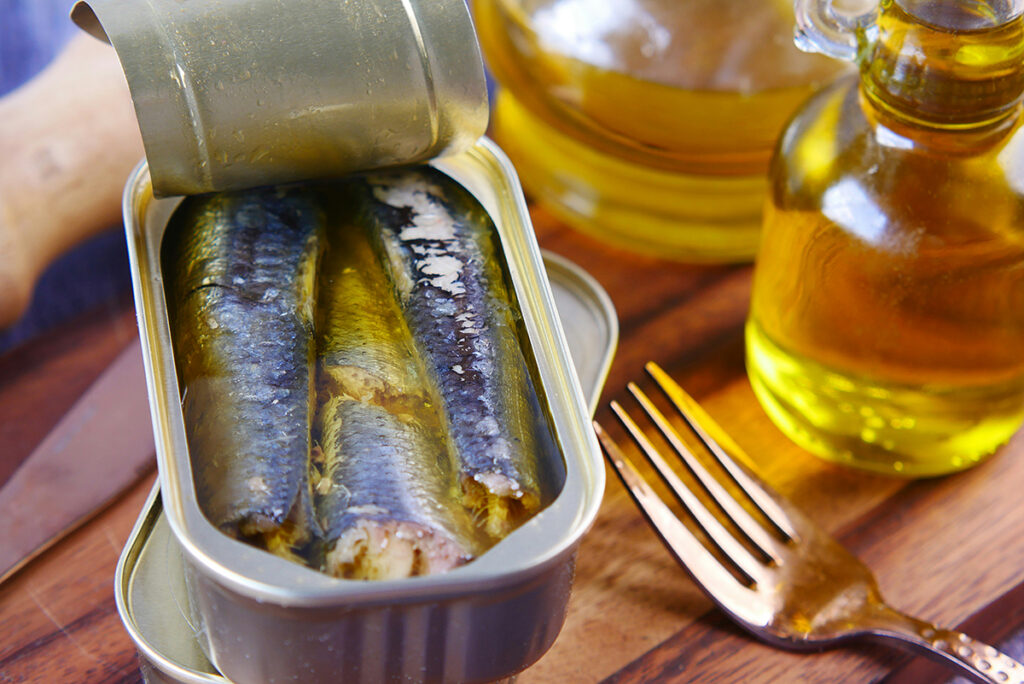Contents
- Healthy gut microbiota is essential for optimal immune system function
- ACE2 role in the gut
- Fact 1. A diet high in sugar and fat depresses the immune system
- Fact 2. Omega-3 and omega-6 have different effects on immunity
- Fact 3: Fermented foods and fiber are antioxidants that protect against inflammation
- Fact 4. Vitamins A, D, C, E and trace elements zinc, iron, selenium reduce the severity of respiratory infections
- Fact 5: Probiotics Protect Against Infections
- Nutrition and ACE2 Expression
- Output
- Reference
While vaccines are available, they do not provide 100% protection against COVID-19. However, adequate nutrient levels can reduce the severity of the disease. Research has shown that optimal nutrition can reduce inflammation and oxidative stress in COVID-19.
Healthy Gut Microbiota is Essential for Optimal Immune System Function
The microbiota is the collection of microorganisms that live in the gut. The microbiota regulates the strength of immune responses to prevent excessive inflammation that can damage tissues and organs.
Diet and viral infections change the microbiota. The body spends many resources to launch an immune response to an infection. If nutrition is not optimal, the body becomes depleted, and the disease causes more damage to the body. During SARS-CoV-2 infection, a healthy gut microbiota supports an optimal immune response and prevents uncontrolled inflammatory responses.
The body’s response to infection and inflammation is regulated by signaling proteins called cytokines. Moreover, the production of cytokines is influenced by the intestinal microbiota.
The intestine acts as a barrier that prevents microorganisms and their waste products from entering the bloodstream. SARS-CoV-2 infects intestinal epithelial cells and alters the intestinal microbiota. Microbiota dysbiosis stimulates innate mucosal immune responses and increases intestinal permeability, leading to impaired gut barrier function, increasing disease severity, and can trigger a cytokine storm.
Modern lifestyles, including lack of sleep, daily stress, and an unbalanced diet, lead to chronic inflammation that suppresses the immune system. The highest morbidity and mortality from COVID-19 is in the elderly, especially those with cardiovascular disease and diabetes. The elderly have less diverse gut microbiota and increased baseline levels of inflammation.
Nutrition is directly related to inflammation and immune responses. A monotonous diet containing highly processed foods does not provide the body with enough vitamins and minerals and disrupts the intestinal microbiota balance, weakening the immune system and increasing susceptibility to the coronavirus. Therefore, you need optimal nutrition to fight the coronavirus that reduces inflammatory responses.
ACE2 Role in The Gut
Coronavirus enters the body by binding to the ACE2 cell receptor. In addition to the lungs, ACE2 is also present in the gastrointestinal tract. Up to 57% of patients with COVID-19 suffer from vomiting and diarrhea.
ACE2 deficiency causes inflammation. The ACE2 receptor controls nutrient uptake in intestinal epithelial cells by binding to amino acid transporters. In a mouse study, ACE2 lack disrupted tryptophan homeostasis. Tryptophan is an amino acid essential for protein synthesis. Tryptophan triggers the production of antimicrobial peptides in the small intestine, and ACE2 deficiency disrupts the production of antimicrobial peptides, microbiota balance and causes an inflammatory response.
Coronavirus also binds to the ACE2 receptor and can compete with amino acid transporters and disrupt cell nutrition. When infected with coronavirus, the level of ACE2 in the intestine decreases, disrupting the gut microbiota, increasing intestinal permeability, and rising local and systemic inflammation.
Fact 1. A Diet High in Sugar and Fat Depresses The Immune System
In the intestines, various types of bacteria are balanced. Some bacteria digest dietary fiber, while others produce the necessary nutrients. Diet affects the composition of the gut microbiota.
Dietary simple sugars and sugar substitutes, especially fructose, predispose to obesity and cause dysbiosis that will lead to abnormal immune responses. Simple sugars increase blood levels of inflammatory cytokines and reduce leukocyte phagocytosis.
The Western diet, which includes excessive consumption of red meat, processed foods, and sugary drinks and a minimal intake of fruits, vegetables, and fiber, increases the incidence of metabolic diseases such as diabetes and obesity. These diseases are associated with sluggish systemic inflammation.
In mice fed a diet high in sucrose and fat, gut microbiota diversity decreased, and susceptibility to opportunistic pathogens increased, decreasing the number of bacteria that protect the intestinal barrier.
In addition, mice fed a high saturated fat diet showed increased macrophage infiltration of lung tissue, especially in the alveoli. That is especially important in the context of the coronavirus, which infects alveolar epithelial cells.
Saturated fats found in palm oil, animal fat, and milk fat may cause severe inflammation and increase the risk of prostate cancer.
Fact 2. Omega-3 And Omega-6 Have Different Effects on Immunity
Polyunsaturated fatty acids (PUFAs), omega-3, and omega-6 regulate inflammation and adaptive immune responses.
Omega-6 is found in vegetable oils and stimulates inflammation. An excess of omega-6 increases the likelihood of metabolic and inflammatory diseases, increases oxidative stress.
Omega-3, found in fish and flaxseed, has reduced inflammation. Omega-3 promotes the production of anti-inflammatory lipid mediators. In a mouse study, an omega-3-derived lipid mediator suppressed influenza virus replication, increased survival, and reduced disease severity, even when current antiviral drugs failed.
In another study, omega-3s suppressed hepatitis C virus replication. In addition, the European Society for Parenteral and Enteral Nutrition recommends the use of omega-3 fatty acids in patients with COVID-19 to improve oxygenation. However, high doses of omega-3s can contribute to oxidative stress and inflammation.
According to the recommendations of Rospotrebnadzor from 2004, an adequate level of consumption of omega-3 (alpha-linolenic, eicosapentaenoic and docosahexaenoic acids) is 1 g. / day. The upper acceptable intake level is 3 g. / day.
The ratio of omega-6 to omega-3 intake is essential. The optimal balance may vary depending on the disease:
- Western diets have an omega-6/omega-3 ratio of 15/1-16.7/1. Excessive amounts of omega-6 and a very high omega-6/omega-3 ratio contribute to cardiovascular disease, cancer, and inflammatory and autoimmune diseases.
- Prevention of CVD: A 4/1 ratio is associated with a 70% reduction in overall mortality.
- A 2.5/1 ratio reduces rectal cell proliferation in patients with colorectal cancer, while a 4/1 ratio with the same amount of omega-3s has no such effect.
- A lower omega-6/omega-3 ratio in women with breast cancer is associated with reduced risk.
- The 2-3/1 ratio suppresses inflammation in patients with rheumatoid arthritis, and the 5/1 ratio has a beneficial effect on asthma patients, while the 10/1 ratio has adverse effects.
Fact 3: Fermented foods and fiber are antioxidants that protect against inflammation
Some foods have antioxidant properties. This effect is based on natural compounds in vegetables, mushrooms, plants, and dairy products that can activate the Nrf2 protein, which regulates the expression of antioxidant proteins, protecting against oxidative damage during inflammation.
Fermentation is a process during which microorganisms convert sugars into acid or alcohol. Fermentation contributes to the antioxidant activity of cereals, milk, fruits, fish, vegetables, and meat. Fermented foods contain live lactic acid bacteria that regulate the gut microbiota and protect against oxidative damage. Lactic acid bacteria are also present in the intestines. They are necessary for the breakdown of food, the absorption of nutrients, and the fight against dysbacteriosis.
A well-known antioxidant product is the Korean dish kimchi, made from several fermented vegetables and has anti-diabetic properties. Kimchi and sauerkraut are functional foods against obesity, constipation, and cancer.
Kombucha is a fermented drink made from tea with sugar. Kombucha exhibits anti-cancer, antioxidant, and antimicrobial activity. Another fermented drink, kefir, regulates the immune system and reduces susceptibility to bacterial and viral infections.
The European Food Safety Authority investigated the impact of fermented vegetables, pickled vegetables, milk, yogurt, and curdled milk on COVID-19 mortality. Only fermented vegetables significantly reduced mortality. For every gram increase in consumption of fermented vegetables per day, the risk of death from COVID-19 was decreased by 35.4%.
The same study compared kale (broccoli, cauliflower, collard greens, and cabbage) with zucchini, spinach, cucumber, lettuce, and tomato. Cabbage and cucumbers also reduced COVID-19 deaths. For every gram increase in consumption of cabbage and cucumbers per day, the risk of death from COVID-19 decreased by 11-13.6%.
Cabbage contains fiber. A high-fiber diet increases short-chain fatty acids (SCFA) levels in the gut and blood and reduces lung damage from respiratory syncytial virus infection. SCFAs stimulate the growth of beneficial bacteria in the gut, inhibit pathogens, maintain gut integrity, reduce inflammation, and regulate the strength and duration of the immune response. Fiber-rich foods suppress morbidity and mortality from the colon, breast, liver cancer, cardiovascular, infectious and respiratory diseases, diabetes, and obesity.
The Western diet lacks fermented foods. The Western diet reduces the diversity of the gut microbiota. In Japan, Westernized diets have led to changes in the microbiota and insulin resistance. Consumption of fast food reduces the number of lactic acid bacteria. Frequent snacking between meals can lead to intestinal dysbiosis, so snacking should be kept to a minimum or consist of fruits and vegetables.
Fact 4. Vitamins A, D, C, E with Zinc, Iron, Selenium Reduce The Severity of Respiratory Infections
Vitamins are essential for the functioning of innate and adaptive immunity. Vitamins A and D are significant. Vitamin A supports the growth of T cells, while vitamin D helps the function of B cells that secrete antibodies. Vitamin A deficiency, often associated with a monotonous diet, increases the risk of severe COVID-19. Vitamin A is found in carrots, sweet potatoes, and green leafy vegetables.
Vitamin C has anti-inflammatory and antioxidant effects. It is crucial in protecting against lung infections. Vitamin C is found in oranges, lemons, strawberries, mangoes, red peppers, broccoli, and vegetables. Early intravenous and oral administration of high doses of vitamin C has been recommended for the treatment of COVID-19 and can be used as a preventive measure without any adverse side effects.
Vitamin D levels are affected by limited sun exposure and outdoor physical activity. Vitamin D has an anti-inflammatory effect. Vitamin D administration reduces the expression of pro-inflammatory cytokines, increases the expression of anti-inflammatory cytokines, and, therefore, can effectively suppress the cytokine storm in COVID-19. Supplementation with vitamins D2 or D3 protects against lung damage and can therefore be used to control symptoms of moderate to severe respiratory infections, including COVID-19. However, high doses of vitamin D can reduce bone mineral density.
Vitamin E deficiency is observed in malnutrition and obesity and increases the risk of contracting coronavirus. Vitamin E has antioxidant and anti-inflammatory properties and reduces susceptibility to respiratory tract infections. Men with higher alpha-tocopherol levels in the blood serum (a type of vitamin E) have reduced mortality from respiratory diseases. Vitamin E is found in vegetable oils, nuts, seeds, broccoli, and spinach.
Maintaining iron homeostasis is vital in preventing COVID-19. Iron deficiency predisposes to infections. However, mild iron deficiency protects against respiratory infections and may represent a process of adaptation to infectious diseases. An excess of iron can cause oxidative stress, which contributes to the appearance of viral mutations. Iron is found in meat, beans, eggs, and dark green leafy vegetables.
Zinc is essential for optimal immune function and the development and maintenance of immune cells. Zinc controls pro-inflammatory responses, while zinc deficiency increases inflammation and tissue damage. People with insufficient zinc intake are more likely to develop obstructive pulmonary disease. In COVID-19, zinc may regulate antiviral immunity and reduce inflammation. Zinc enhances the antiviral effect of interferon-alpha. Zinc is found in Mediterranean diet foods, including beans, lentils, nuts, sesame seeds, pumpkin seeds, red meat, and poultry.
Selenium has antioxidant properties. Selenium deficiency disrupts the immune system. Selenium deficiency causes oxidative stress, which can alter the viral genome so that the virus becomes more pathogenic. Selenium is found in seeds and nuts, cereals, fish, meat, poultry, and eggs.
Fact 5: Probiotics Protect Against Infections
Probiotics are foods that contain live microorganisms. With the help of probiotics, you can regulate the balance of the intestinal microbiota, increasing the number of beneficial organisms and suppressing pathogens. Probiotic microorganisms regulate immune responses, the production of organic acids and antimicrobial compounds, and improve the intestinal barrier’s integrity and the formation of enzymes.
A significant stage of infection is the attachment of the virus to the cell of the body. Probiotic bacteria can directly attach to the virus, preventing the infectious process. Lactic acid bacteria have immunomodulatory properties and protect against infections by stimulating cytokine antiviral responses in the intestinal mucosa, immune and respiratory cells.
The introduction of lactic acid bacteria intranasally protects against viral respiratory infections by triggering an innate immune response in the epithelium of the respiratory tract. Intranasal administration of lactic acid bacteria increases the expression of IgA, IFN-gamma, and TNF-α, protecting against infection and preventing severe influenza virus.
As a complementary treatment, Probiotics reduce the inflammation caused by the coronavirus and repair the damaged intestinal mucosa. Probiotic supplements relieve gastrointestinal symptoms of COVID-19 and reduce the risk of secondary infection.
Nutrition and ACE2 Expression
ACE2 deficiency disrupts the gut microbiota, increases intestinal permeability, and increases local and systemic inflammation. Diet influences ACE2 expression:
- A diet rich in fructose and a high in salt suppresses ACE2 expression.
- A diet high in fat – 50 to 60% of total calories – reduces ACE2 expression.
- Resveratrol at 50 mg/kg per day increases ACE2 expression. Resveratrol is a compound found in grapes, berries, cocoa, and red wine and is known for its protective role in cardiovascular, cancer, and respiratory diseases.
- A combination diet high in fat and resveratrol significantly increases ACE2 expression, unlike a diet high in fat alone. Resveratrol may prevent the harmful effects of a high-fat diet on ACE2 expression.
Output
Lack of sleep, daily stress, and an unbalanced diet cause chronic inflammation that suppresses the immune system. Diet and lifestyle can influence inflammation and regulate immune system function.
The main reason for weak immunity is a lack of nutrients. Nutrient deficiencies impair immune cell activation, cytokine, and antibody production and are associated with severe COVID-19.
A balanced diet with sufficient vitamins, micronutrients, probiotics, fiber, vegetables, and fruits, and minimizing sugar, highly processed foods, fast food, and high-fat foods supports the diversity of the intestinal microbiota and the beneficial microorganisms living in it. A healthy microbiota reduces susceptibility to infections and protects against severe COVID-19.
Useful article, necessary information? Share it!
Someone will also find it useful and necessary:



